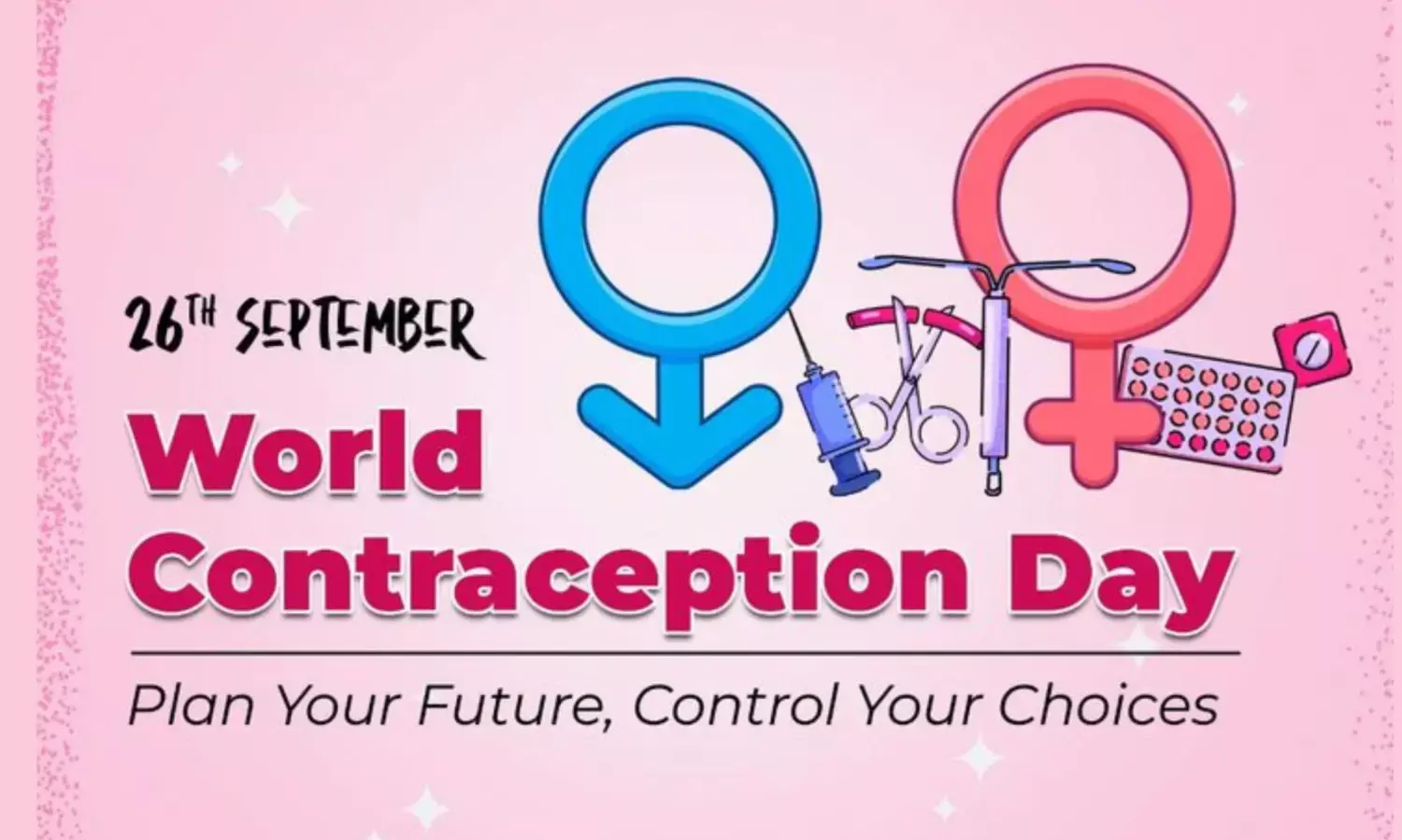World Contraception Day 2025: Breaking Myths, Building Trust

New Delhi, 26 September 2025 – Every year, World Contraception Day reminds us that informed choices about family planning are not just about preventing pregnancy—they are about health, autonomy, and the right to shape one’s future. The 2025 theme highlights awareness, open conversations, and breaking the silence around contraception.
For decades, contraception has been a cornerstone of reproductive healthcare. Yet, social stigma, cultural hesitations, and misinformation continue to prevent couples from making confident decisions. On this day, health experts emphasize the need to replace myths with facts, and silence with dialogue, so that contraception becomes a shared responsibility and not a hidden burden.
Understanding Contraceptive Methods
Contraceptives can broadly be classified into three categories:
Barrier methods – The most common is the condom, which is inexpensive, widely available, and provides dual protection by preventing pregnancy and safeguarding against sexually transmitted infections (STIs).
Hormonal methods – These include pills, patches, injections, and intrauterine devices (IUDs). They work by regulating hormones to stop ovulation. When prescribed and monitored by a doctor, they are safe and highly effective.
Permanent methods – Options such as tubectomy for women and vasectomy for men provide irreversible solutions for couples who no longer wish to conceive.
Clearing the Air on Contraception
Myths and misconceptions often cloud decisions about contraception. Experts highlight a few common ones:
Myth: Contraceptive pills are unhealthy.
Fact: Pills are safe, effective, and even life-saving when used under medical supervision.
Myth: Contraception reduces fertility.
Fact: Fertility usually returns after stopping contraception, except in permanent procedures like sterilisation. By dispelling these myths, experts hope to encourage couples to view contraception as a reliable, practical
choice rather than something to fear.
What Couples Should Know
Experts also share essential points couples must consider before choosing a contraceptive method:
On new methods and medical guidance
“Many newer contraceptives are still under development. Always consult a doctor before starting or switching methods. Self-prescribing can be risky.”
On planning and family history
“Think about how long you want to delay pregnancy. Consider your family history and overall health before deciding on a method.”
On switching methods
“Frequent changes, especially with pills, are not recommended. Switch only if there is a strong medical reason.”
On male vs female contraception
“There are more contraceptive options for women than for men. Reducing male fertility by 90% still leaves the possibility of pregnancy, whereas female fertility can be more effectively regulated through hormones or devices.”
On shared responsibility
“Contraception should not be seen as the woman’s duty alone. Since intercourse involves both partners, decision-making must be shared as well.”
On cost and effectiveness
“Options vary from a Re 1 condom to an Rs 12,000 IUD. Couples should weigh cost, effectiveness, and duration before choosing what works best.”
On family conversations and women’s rights
“Families should foster openness about contraception. Women must have the autonomy to make choices about their own bodies, and this right needs to be respected at home and in society.”
Breaking the Silence
In many households, contraception is still considered an awkward or forbidden topic. This silence often leaves women carrying the burden alone, while men remain uninvolved. World Contraception Day is a reminder that these conversations must change.
When couples talk openly, contraception becomes a shared choice instead of a hidden struggle. When families normalize discussions, women gain confidence to assert their rights. And when myths give way to facts, fear is replaced with trust.
Looking Ahead
While research is exploring new contraceptive methods, the immediate need is awareness, education, and communication. Every honest conversation about contraception is a step toward healthier relationships, empowered women, and stronger families.
World Contraception Day is not just about preventing births—it’s about empowering people with the right to decide when and how to build their families. By breaking myths, promoting shared responsibility, and supporting women’s autonomy, contraception can move from being a burden of silence to a symbol of choice, equality, and empowerment.


